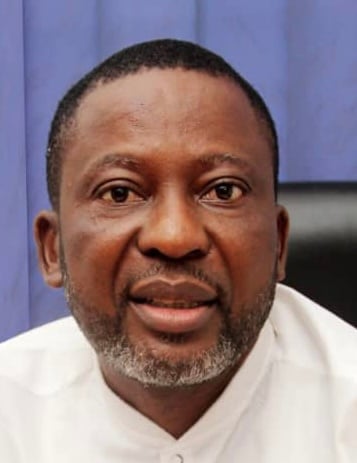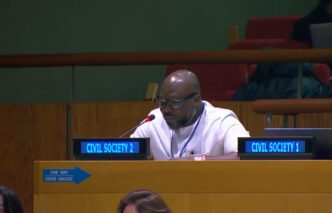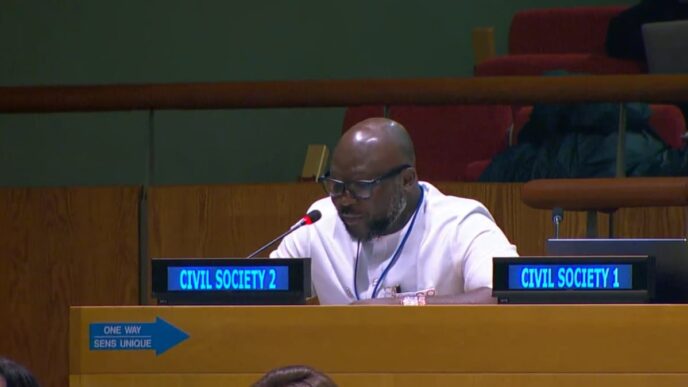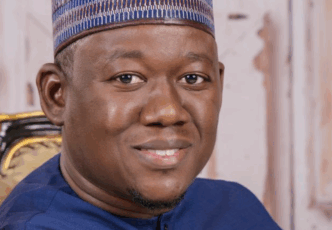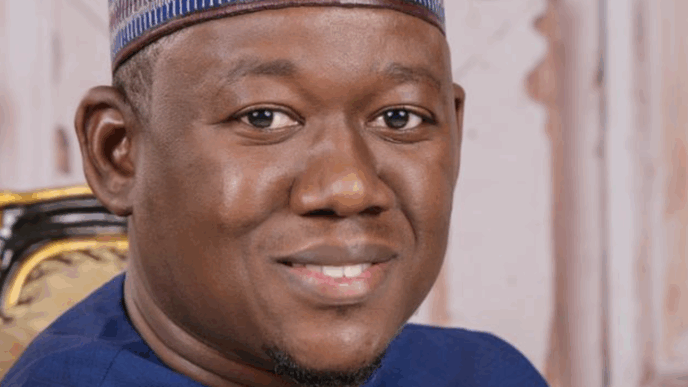Conversations around leadership often veers toward politics, power, and privilege, but rarely toward personal excellence. Yet, history has shown that nations rise or crumble not simply because of policies or party manifestos, but because of the character of those entrusted with leadership.
Specifically, Nigeria’s leadership crisis, like most of other African countries and the rest of the world (where leadership has failed enormously), isn’t just about poor governance, it is a crisis of internal bankruptcy, where those in power often lack the foundational discipline, integrity, and vision needed to lead themselves, let alone a nation.
Or what can you say about a country where most of its leaders are still forging certificates to meet the threshold of primary requirement as low as school leaving certificate, still forging age and birth certificates, disobeys court orders while judges give justice to the highest bidder, use their children name to acquire public properties at the expense of the masses who should benefit from it and spend billions of dollars un-accounted for or even without appropriation by the statutory authorities among other ills.
In systems already riddled with corruption, impunity, and institutional decay, the absence of personal excellence becomes the final nail in the coffin.
Take a look around infrastructural development efforts of governments in Nigeria for instance, roads built today collapse tomorrow; budgets disappear before they’re disbursed; and national visions fade with every new election cycle.
The tragedy is not just that our systems are failing, but that those meant to fix them are themselves compromised, void of self-leadership, integrity, and the moral clarity to act in the public good.
Advertisement
Personal excellence is about becoming a person of worth, whose inner compass is guided by principles, whose vision is driven by service, and whose words align with action. It is not a skill one picks up for the cameras; it is a commitment to living above board even when no one is watching.
What most failed leaders have in common is not lack of education or exposure as many are globally trained, credentialed, and eloquent, however the real deficit lies within as you cannot compensate moral bankruptcy with global education or exposure.
Every failed leader lack excellence within, that deep-seated commitment to doing right, the discipline to resist excess, and the courage to stand alone when principles are at stake.
Advertisement
Leadership without personal excellence is like steering a ship with no compass. It may appear to be moving, but it’s directionless, reactionary, and ultimately doomed. When leaders lack self-discipline, they overindulge; when they lack empathy, they exploit; when they lack vision, they cling to outdated power games at the expense of progress.
Imagine a governor who does not inflate contracts, who comes to work on time, listens to citizens, and responds to crises with competence. Imagine a senator who reads every bill thoroughly, consults with constituents, and stands against executive excesses not for media praise, but because it is right. These simple acts, when grounded in personal excellence, become revolutionary in a country worn down by mediocrity.
Certainly, the failure of leaders due to a lack of personal excellence and vision is a major contributor to systemic collapse in many nations.
In Nigeria for instance, President Sani Abacha (1993–1998): was not lacking in strategic capacity as he was a military tactician but he lacked integrity and national empathy. Under his regime, over $5 billion was looted and stashed abroad, crippling public trust and infrastructure development. The result was that Nigeria became a pariah state, sanctions were imposed, and civil liberties were crushed. His personal greed overshadowed any economic stability achieved during his tenure.
Advertisement
Also, President Goodluck Jonathan (2010–2015) was said to be weak in the face of corruption. Though Jonathan was seen as a mild-mannered leader, but his failure to decisively act against corruption and insecurity (e.g., Boko Haram’s rise) signaled weak personal leadership.
Under his watch, the $2.1 billion arms deal scandal, in which funds meant for military equipment were embezzled exposed a leadership lacking in accountability and discipline, and contributed to the country’s worsening security crisis and his loss in the 2015 election.
While President Bola Ahmed Tinubu (current president), campaigned on competence and reform, his half term has been clouded by perceived nepotism, economic hardship, and cabinet appointments criticized for rewarding loyalty over merit.
Critics argue that his inability to decisively address fuel subsidy management and forex instability among other seeming corruption tendencies of his admiration reflects leadership without clear moral and economic direction.
The next years will determine whether he rises above these concerns or becomes another example of a leader who failed from within.
Similarly, Robert Mugabe of Zimbabwe, once a liberation hero, lost his moral compass over time. His desire to cling to power and inability to prioritize national interest over personal rule led to economic collapse and political repression. Hyperinflation, mass emigration, and Zimbabwe’s economic ruin stemmed from one man’s ego and detachment from personal responsibility.
Also Jacob Zuma of South Africa’s presidency was marred by corruption, most notably his ties to the Gupta family, who were accused of “state capture”—influencing cabinet appointments and state contracts, resulting to weakening of South Africa’s institutions while investors’ confidence dropped, and social unrest increased all due to a president who allowed personal loyalty and greed to eclipse national duty.
The list can go, on and on and on especially among African leaders. Also in Nigeria at the state levels, Zamfara State, once rich in gold, is now a symbol of what happens when leadership fails. There, illegal mining, banditry, and lawlessness thrive—because those who were tasked with protecting the state allowed greed to override governance. The same trend echoes in Benue, Niger, and even Cross River, where corruption, land-grabbing, and political thuggery grow unchecked.
Advertisement
These crises are not just systemic; they are deeply personal. They stem from the failure of individuals who, despite occupying high offices, never cultivated the personal excellence necessary to use power responsibly.
True leadership begins not with the title, but with the individual behind the title. Personal excellence is the inner engine that drives visionary decisions, ethical conduct, and responsible governance. It is the ability to consistently pursue high standards, not just for applause, but because excellence is a duty owed to those you lead.
Advertisement
In failing systems, where corruption is normalized and mediocrity rewarded, personal excellence is revolutionary as it resists shortcuts, demands accountability, and insists on transparency even when the system resists. A leader who embodies excellence leads by example, setting a new standard in the face of systemic rot.
Let’s consider Nelson Mandela, former South African President who spent 25 years in prison fighting for the country’s liberation from apartheid, not perfect, but principled. His strength did not come from his title but from his moral authority.
Advertisement
Decades of personal sacrifice, self-discipline, and commitment to justice gave him a credibility that no political office could manufacture. He didn’t just lead a nation he embodied the excellence it desperately needed.
That same spirit is needed now more than ever especially in Nigeria. As the country inches closer to the 2027, general elections, in every local council, national assembly, and presidency, Nigeria’s future demands leaders who have first conquered themselves.
Advertisement
For Nigeria to fulfill its promise, it must shift its focus from celebrating loud leadership to demanding excellent leadership; quiet, disciplined, principled, and effective.
This must begin from the grassroots to the presidency. Schools, families, political parties, religious institutions, every segment of society must teach and reward the value of personal excellence.
Nigeria and the rest of Africa does not lack resources; it lacks leaders of character. The revival of any failing system begins with the emergence of individuals who choose personal excellence over political expedience. Leaders who show up prepared, informed, and morally grounded. Leaders who lead from within.
As Nigeria and the rest of Africa continent navigates a future riddled with uncertainty, one truth must remain clear: no system, no matter how broken, can stand against the force of leaders who possess excellence within. Nations are waiting—not for saviors, but for self-led servants.
The excellence Nigeria and Africa seeks in its roads, hospitals, schools, and institutions must first be born within the hearts of its leaders. A nation cannot rise above the character of those who lead it.
If we desire progress, then the next revolution must not be in the streets, it must be in the souls of those who seek to lead.
Because leadership without personal excellence is merely occupation of space. But leadership with personal excellence is what builds nations.
Okoronkwo, a leadership and good governance advocate writes from Lagos Nigeria and can be reached via [email protected].
